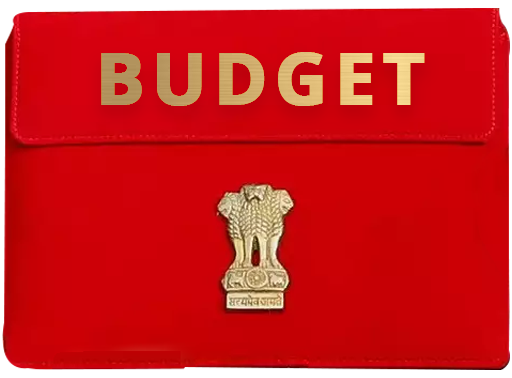- What is Reinsurance?
- What is Double Insurance?
- Reinsurance vs Double insurance

Himanshu is a content marketer with 2 years of experience in the life insurance sector. His motto is to make life insurance topics simple and easy to understand yet one level deeper for our readers.
Reviewed By:

Sharan Gurve has spent over 9 years in the insurance and finance industries to gather end-to-end knowledge in health and term insurance. His in-house skill development programs and interactive workshops have worked wonders in our B2C domain.
Updated on Jul 09, 2025 4 min read
Difference Between Reinsurance and Double Insurance
Insurance has become an important part of our lives as it provides financial protection or coverage against uncertain losses. However, people often get confused between two important terms used in insurance- reinsurance and double insurance.
These two terms appear to be the same but significant differences lie between the two. Let’s understand how reinsurance is different from double insurance.
What is Reinsurance?
Reinsurance is an agreement between the two parties involved- the insurance company and the reinsurer company. Sometimes insurance companies pass on some of the potential risks to other insurance companies to reduce the losses that can occur. It is also called insurance for insurance companies.
Generally, insurance companies take reinsurance when the risk involved or the insurance amount is high. This practice has become common nowadays. Let’s understand how reinsurance works in actual life.
Suppose Mr. Somdeep has purchased a life insurance worth Rs 5 crore from ABC Ltd. ABC Ltd took reinsurance from XYZ Ltd for an amount of Rs 2 crore. In case of Mr. Somdeep’s demise, ABC Ltd would bear an amount of Rs 3 crore and the rest of 2 crore will be borne by XYZ Ltd. In the above scenario, XYZ Ltd is the reinsurer for Mr Somdeep’s life insurance.
What is double insurance?
When a person purchases more than one insurance policy either from the same insurer or other insurer it is called double insurance. Generally, people take more than one insurance policy to enhance total protection or coverage. In the case of life insurance policies, an individual can purchase multiple policies but the total coverage amount depends on the life value of the individual. This value is based on the total annual income and it can go up to 20 times the annual income of the policyholder.
It is usually up to the individual how many life insurance policies they purchase. However, it is essential to inform your previous insurer that you have purchased another insurance to avoid claim rejection. Let’s understand how double insurance works with an example.
Suppose Mr. Sushil who is sole bread-earner of his family purchased life insurance worth Rs 50 lakh from ABC Ltd. A few months later he realized that the insurance policy he had purchased was insufficient to secure his family after him. So he purchased another life insurance policy worth Rs 1 crore from XYZ Ltd.
In this case, having two policies is called double insurance.
Reinsurance Vs Double Insurance
| Parameters | Reinsurance | Double Insurance |
|---|---|---|
| Definition | Transfer of risk by one insurance company to another. | More than one policy is purchased to enhance the overall coverage. |
| Policy Owner | Purchased by insurance companies. | Purchased by any individual. |
| Purpose | To pass some of the potential risks. | To enhance the overall coverage or protection. |
| Claim Payment | Payment made is up to the sum insured with them. | Claim processed by insurance companies in the ratio of the sum insured. |
| Claim Settlement | Beneficiary claims the compensation from the insurance company which further claims from the reinsurer. | Beneficiary can directly claim the compensation amount from the insurance companies. |
Difference Between Insurance and Reinsurance
| Parameters | Insurance | Reinsurance |
|---|---|---|
| Definition | A contract in which policyholders pass their risk to an insurance company in exchange for a premium. | A contract between an insurance company and a reinsurer in which the insurance company passes some of the risks to the reinsurer. |
| Policy Buyer | Purchased by individuals, business owners for their employees, or groups of people. | Purchased by the insurance companies. |
| Claim Settlement Liability | Compensation amount is paid by the insurance company. | Compensation amount is paid by the insurance company and reinsurer in the ratio of the sum insured. |
| Premium Cost | Less than the reinsurance. | More than the insurance. |
| Premium Reciever | The premium amount is received by the insurance company from insured. | Divided in the agreed ratio between the insurance company and the reinsurer. |
Conclusion
Now you have understood how insurance, reinsurance, and double insurance vary from each other. Insurance and double insurance are meant for individuals whereas reinsurance is meant for insurance companies. Insurance is purchased to cover unforeseen losses and double insurance helps to enhance the overall coverage whereas reinsurance helps insurance companies to reduce their total risk. To buy a suitable insurance policy you can visit PolicyX.com. It is an IRDA-approved online insurance comparison portal that understands your requirements and helps you choose the right plan.
Difference between Reinsurance and Double Insurance: FAQs
1. Can I purchase multiple life insurance policies?
Yes, an individual can purchase as many life insurance policies as they want but they have to consider their human life value which is based on their annual income.
2. Why do insurance companies use reinsurance?
Generally, insurance companies take reinsurance to reduce the potential risk or to expand their business line.
3. What is the purpose of double insurance?
The major purpose of double insurance is to enhance the overall coverage or protection from unforeseen losses.
4. How reinsurance claim is settled?
The claim is divided into the insurance company and the reinsurer in the ratio of the sum insured by them.
5. Are policyholders directly involved in the case of reinsurance?
No, policyholders are not involved in the reinsurance as the settlement occurs between the insurance companies and the reinsurer.
Life Insurance Companies
Share your Valuable Feedback
4.6
Rated by 863 customers
Was the Information Helpful?
Select Your Rating
We would like to hear from you
Let us know about your experience or any feedback that might help us serve you better in future.


Written By: Himanshu Kumar
Himanshu is a seasoned content writer specializing in keeping readers engaged with the insurance industry, term and life insurance developments, etc. With an experience of 2 years in insurance and HR tech, Himanshu simplifies the insurance information and it is completely visible in his content pieces. He believes in making the content understandable to any common man.





















Do you have any thoughts you’d like to share?